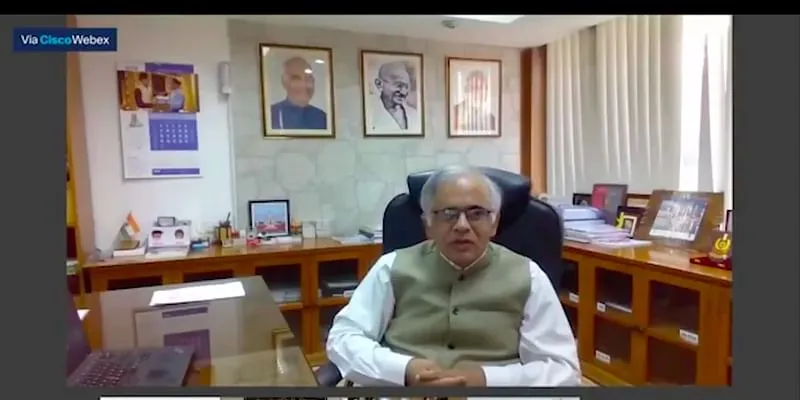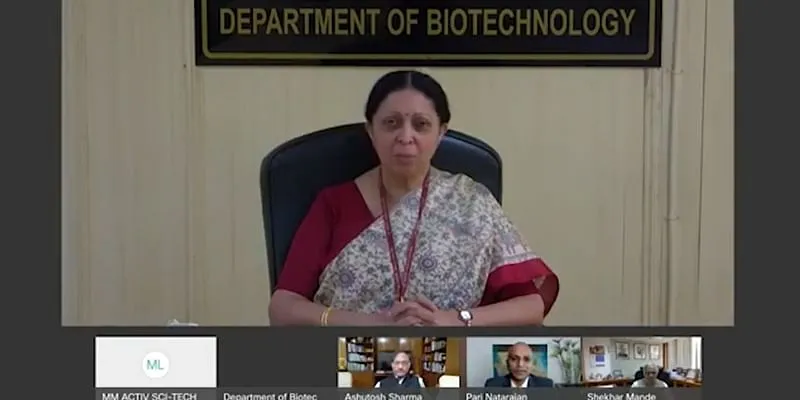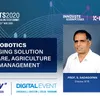India needs to think how science and tech can be a part of sustainable growth, say experts at Bengaluru Tech Summit 2020
Speaking at the Bengaluru Tech Summit 2020, experts said that collaboration between academia and industry is very important for creating solutions. The COVID-19 breakout has seen both of them come together and find solutions for the crisis.
The coronavirus outbreak gave a massive boost and also fast-tracked innovations. In the last five to six months, the industry, academia, and the government came together to find a solution for the unprecedented health crisis being faced by humanity today.
Addressing the audience virtually during the Bengaluru Tech Summit 2020, Prof Ashutosh Sharma, Secretary, Department of Science and Technology (DST), GoI, said that the current generation has woken up with the challenges of the future. There is a need for the country to think and implement science and technology to achieve sustainable growth and solve the problems.
He also said that in order to come up with ideas and innovations, it is also important to start respecting knowledge. He explained that people who can actually transform an idea into a solution are all learning and taking in all the knowledge they need.
“We need to start respecting knowledge for our own selfish interest. There is a push of knowledge that comes from R&D labs and universities and a pull which comes from industry. They need to work together to achieve that click” said Prof Ashutosh Sharma.

Dr Shekhar C Mande, Secretary, DSIR, and Director General, Council of Scientific & Industrial Research, addressing the audience virtually at BTS2020
Academia and industry collaboration
Speaking at the virtual event, Dr Shekhar C Mande, Secretary, DSIR and Director General, Council of Scientific & Industrial Research, said that the corona period saw both the industry and academia come together and be receptive to each other. He explained that this is the positive way as the industry needs the academia to understand the problems of the industry and give them ideas to solve it while the academia needs the industry to fill the gaps.
Highlighting the importance of the synergy, Prof Ashutosh said that while a lot of things are indeed happening in the ecosystem, there is a need for transformative processes in higher education and culture. He explained that there is a need for models and ways to look at startups and innovation.
“Atma Nirbharta (self-reliance) comes from Aatmavishwas (self-confidence). Our education system needs to have a culture to build confidence among the students to create solutions, companies, and businesses,” Prof Ashutosh said.
Apart from this, Dr Shekhar also advised that startups need to explore and have basic knowledge of how to formulate patents. ”Intellectual property is a bedrock for the foundation on which we can build a lot of knowledge businesses,” he said.

Dr Renu Swarup, Secretary, Department of Biotechnology (DBT), GOI
Bridge between Startup India and Make in India
Dr Renu Swarup, Secretary, Department of Biotechnology (DBT), GOI, said that government institutions such as DST and DBT are looking to create a bridge between “Startup India” and “Make in India”.
She added that DBT has supported almost over 50,500 startups involved in developing cutting edge technologies. She added that five of the startups it has supported are currently in the race to come up with COVID-19 vaccine.
“'COVID-19 has brought biotech to the forefront. The whole diagnostic success story happened due to academic institutions and the startup participation. We are today completely self-reliant in terms of diagnostic kits,” Dr Renu said.
Prof Ashutosh also explained that DST has supported more startups in the last five years than the previous 50 years. “During COVID-19, we picked up 80 startups who are leveraging tech to address the crisis at hand in order to guide them," he added.
Advising the budding entrepreneurs and innovators, Dr Renu said that someone who is trying to become an entrepreneur must have a risk-taking ability, while Prof Ashutosh added that entrepreneurs need to have a stable business model and connect with people who can be different than themselves to learn and have a broader perspective.
Edited by Megha Reddy









